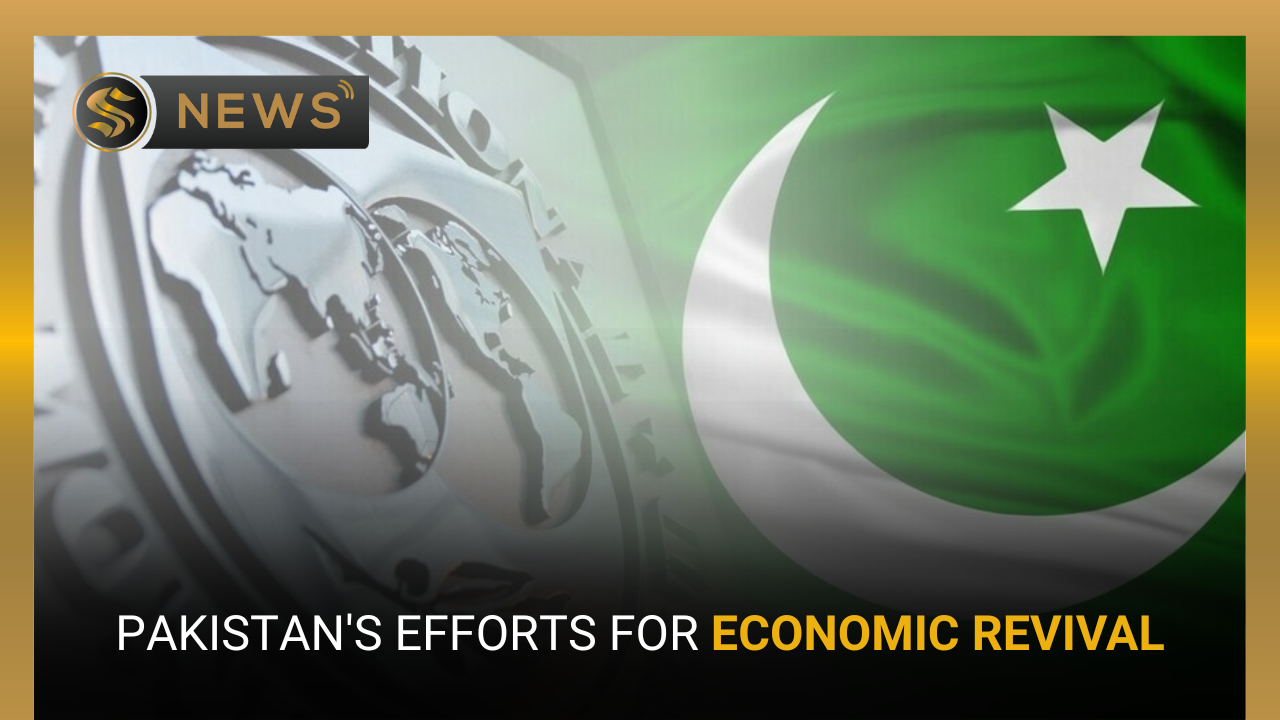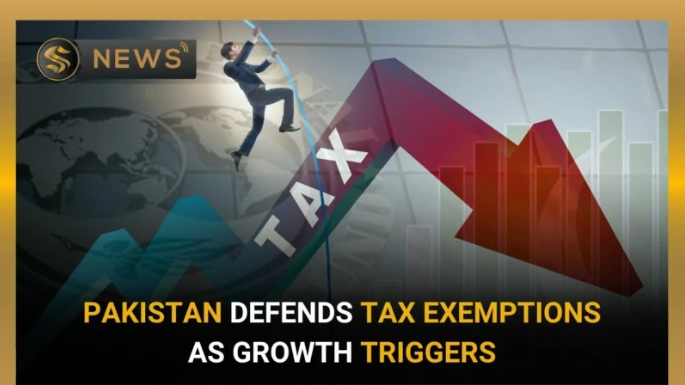
Share This Story, Choose Your Platform!
Pakistan’s Efforts for Economic Revival
Pakistan’s economy has faced significant challenges in recent years, leading to a state of economic turmoil. Factors such as rampant corruption, mismanagement, the adverse impact of the COVID-19 pandemic, a global energy crisis, and frequent natural disasters have taken a heavy toll on the nation’s economic stability. This blog aims to provide a comprehensive analysis of the ailing state of Pakistan’s economy, the recent IMF agreement, its implications, and the crucial need for long-term reforms to achieve sustainable economic recovery.
Economic Turmoil and Its Consequences
The growth of Pakistan’s gross domestic product (GDP) has stalled, with the projected expansion of only 0.29% for the fiscal year ending June 30. Simultaneously, the country has witnessed a surge in inflation, reaching an alarming record of 38% in May. This inflationary pressure has resulted in a sharp decline in real wages for many Pakistanis, significantly impacting their standard of living. Notably, the soaring cost of essential items, such as food and transportation, has hit the poorest segments of society the hardest. Food prices have skyrocketed by 40% since June 2022, while transport costs have risen by 20%.
You May Also Read
Driving Economic Growth – Pakistan’s Budget Aims to Overcome IMF Concerns
The IMF Standby Deal and Its Significance
Pakistan has negotiated with the International Monetary Fund (IMF) to address the mounting foreign debt and the widening balance-of-payments gap. Recently, a landmark $3 billion standby deal was struck, pending approval by the IMF board in July. According to Prime Minister Shahbaz Sharif’s government, this agreement holds immense significance as it is expected to provide much-needed relief and put Pakistan on the path towards sustainable economic growth.
The IMF deal is also anticipated to unlock additional financial support from key lenders like China, Saudi Arabia, and the United Arab Emirates (UAE), who have already pledged or rolled over billions of dollars in loans to Pakistan. These funds will help stabilize the currency and the economy in the short term, providing a respite from the immediate crisis.
Implications and Challenges Ahead
While the IMF deal offers short-term relief, it requires implementing painful measures, including removing popular subsidies on gas and electricity. Unfortunately, these moves will hurt the poor and vulnerable, increasing their financial burden. The agreement should be seen as a stopgap measure, allowing Pakistan the time and resources needed to prevent an economic default. However, achieving sustainable economic recovery demands long-term reforms beyond the immediate austerity measures imposed by the IMF. Pakistan must address systemic issues such as corruption. It must devise a strategy to improve governance, enhance tax collection mechanisms, attract foreign investment, and prioritize job creation to achieve economic stability.
The Need for Long-Term Reforms
Pakistan must embark on comprehensive and enduring reforms to ensure a sustainable economic recovery. It entails tackling corruption at all levels, implementing transparent governance practices, and strengthening institutions responsible for economic management. Additionally, the country should focus on attracting foreign investment by creating a conducive business environment and simplifying bureaucratic procedures. Enhancing tax collection mechanisms will generate much-needed revenue to fund developmental projects and social welfare programs. Furthermore, investing in education and skills training will empower the workforce, improve productivity, and create job opportunities, particularly for the youth.
Pioneering Excellence in Real Estate
Amidst these challenging times in Pakistan, Sapphire Builders & Associates has emerged as a trusted name, offering reliable and safe investment opportunities that yield substantial profits. We understand the importance of making informed decisions in the ever-evolving real estate market, and our track record speaks for itself. With a focus on client satisfaction, we have consistently provided projects that meet high standards of quality and offer lucrative returns.
In the face of economic uncertainties, we have strived to create projects that withstand the test of time and provide a secure investment option for our clients. Our commitment to excellence and attention to detail have positioned us as a go-to choice for individuals seeking reliable opportunities in the real estate sector.
At Sapphire Builders & Associates, we pride ourselves on identifying emerging trends and capitalizing on them to create projects with substantial growth potential. Whether it’s Opal Mall and Luxury Suites, Omega Mall, or Oak Vista Luxury Services Apartments, our developments are carefully designed to cater to the evolving needs of investors and provide them with a platform for remarkable returns on their investments.
Conclusion
Pakistan’s economy has faced multifaceted challenges due to corruption, mismanagement, the COVID-19 pandemic, and natural disasters. The recent IMF standby deal offers temporary relief but necessitates austerity measures that may further burden the population. Pakistan must view this agreement as a stepping stone toward long-term reforms, addressing systemic issues and focusing on economic stability. By implementing comprehensive measures to combat corruption, improve governance, attract foreign investment, enhance tax collection, and prioritize job creation, Pakistan can lay the foundation for a brighter and more prosperous economic future.




